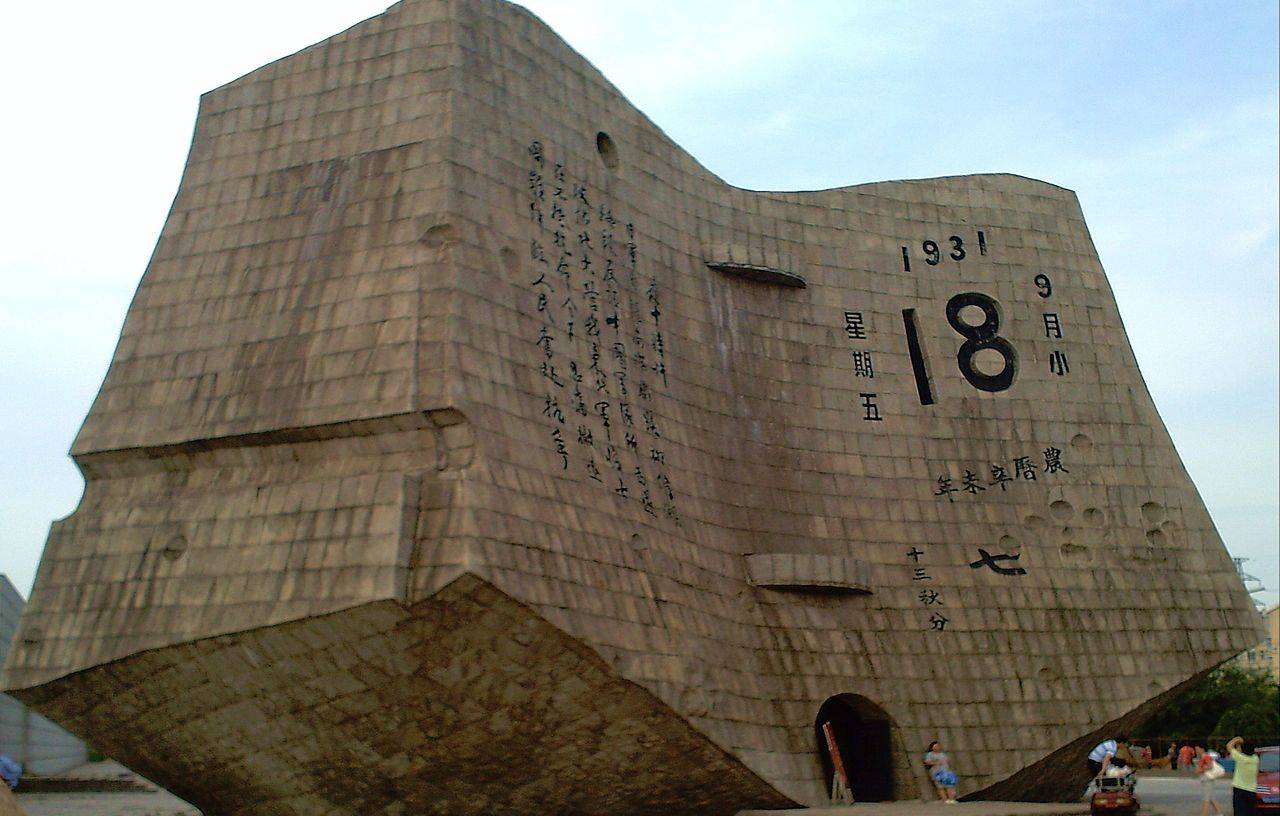ONE DATE, 18 SEPTEMBER 1931, is an ever-present reminder of humiliation for the whole Chinese nation. It was the day of the Mukden Railway Incident, used by the Japanese as a pretext to annex Manchuria.
The Japanese army’s incursions into China threatened the military of the country. The ruling Kuomintang Party, led by Chiang Kai-shek, ordered the Chinese army to withdraw from Manchuria and adopt a nonresistance policy toward Japan.
The Chinese government appealed to the League of Nations, which led to the publishing of the Lytton Report.
This condemned Japan’s invasion of China, but was nothing more than tepid censure. As Lu Zhengxiang, the first Minister of Foreign Affairs said in 1945, “Weak countries have no diplomacy”.

Japan established the puppet state of Manchukuo in 1932 after five months’ fighting, and continuous warfare followed the Mukden Incident.
A NEED TO FIGHT
But many people did not agree with the policy of non-resistance. Various volunteer armies formed and participated in defeating the Japanese forces. The Communist Party of China united them together.
After defeating the Japanese Army in the Sino-Japanese War and wing the Chinese Civil War, Mao Zedong declared the establishment of the People’s Republic of China. No international appeal or investigation could decisively save a weak country then; only the CPC could.
NON-RESISTENCE
Policies of “nonresistance” don’t work in China. Nowadays, the great and the good in the world of the international media continuously try to persuade us to “live with the virus”.
Some western countries as well as Singapore have adopted that trend.

But the fact is that the Zero Tolerance strategy has worked before and will work again in combating the COVID-19 epidemic in China.
Through large-scale vaccination, efficient testing, timely use of Big Data for contact tracing, and comprehensive instructions for stay-at-home policies, Wuhan succeeded in ridding itself of the virus at high speed.
This strategy requires decisive action from the government, high-level technology innovation, vast amounts of citizen participation and single-minded community coordination.
LIVES COME FIRST
President Xi Jinping attended a meeting to commend role models in China’s fight against the COVID-19 epidemic and summarized the spirit of combat which features putting people’s lives first, nationwide solidarity, sacrifice, respecting science, and a sense of mission for humanity.
“Putting people’s lives first” indicates the CPC’s people-centered philosophy of development, which is evident from the 10-days’ completion of Huoshenshan (Fire God Mountain) hospital and 310 million people watching the live stream of the around-the-clock construction progress provided by China’s state broadcaster.
If anyone would like to attack China on the basis of “human rights’, they need to watch the mask-wearing patients dancing with the nurses in the hospital and the bloody marks from mask-related skin irritation on the doctors and nurses’ faces first.
SHARED WEALTH
Common prosperity is the fundamental principle of socialism with Chinese characteristics. By the end of 2020, a huge proportion of the world’s poor were lifted out of extreme poverty by the CPC.
Now the CPC comes up with the vision of building a poverty-free global community with a shared future. New anti-monopoly rules have been issued to govern certain industries and stop anti-competitive practices.
The sweeping overhaul of the country’s US$100 billion private education industry aims to bring back the nature of education as an act of welfare for society and limit the impact of capital.
On the other hand, internet enterprises actively support and comply with the new regulation by moving closer, to co-operate among different platforms.
Companies which announced concerns over the west’s allegations of human rights abuses against the Uyghur Muslims in Xinjiang province were boycotted by people in China, from celebrities to consumers.
It reminds me of the saying of Confucius when asked about politics and governance: “Let the ruler be a ruler; the minister, a minister; the father, a father; the son, a son.”
A million hearts beat as one, the Chinese people have arrived at their most perilous time once and once again and marched on under the fierce fire of the enemies.
ON HONG KONG
Some people in Hong Kong, lacking a sense of belonging, confused about identity, became anxious, and emigrated. But fear can be eliminated by knowledge.
Getting to know more about history makes a huge difference. Consider the three years and eight months when the city was occupied by Japan, and the work of the East River Column and other Hong Kong Volunteer Defence Forces.

Such a process will be helpful in getting Hong Kong people to acknowledge its role in resistance.
Hong Kong is part of the 14th Five-year Plan of China and should be confident about integrating itself into the development of the country.
Ariel Lau is a member of China Retold, a group campaigning for a fairer telling of the stories of mainland China and Hong Kong.
Image at the top by ‘Road Trip with Raj’/Unsplash
